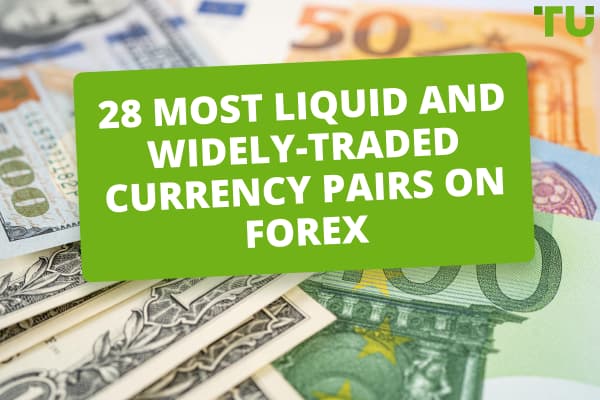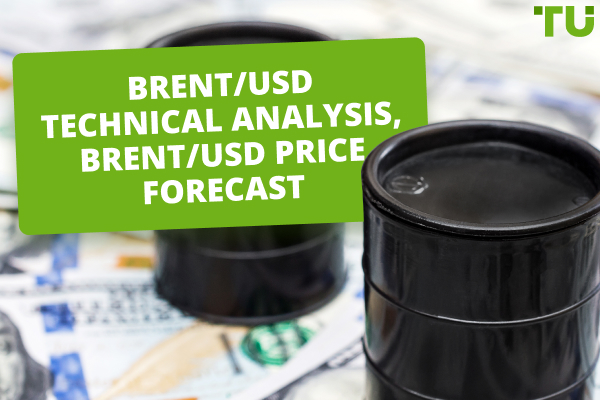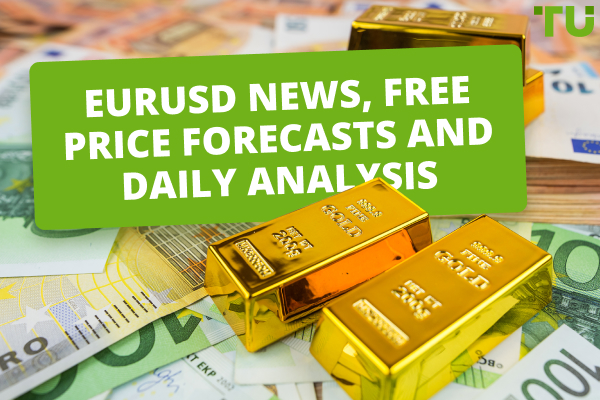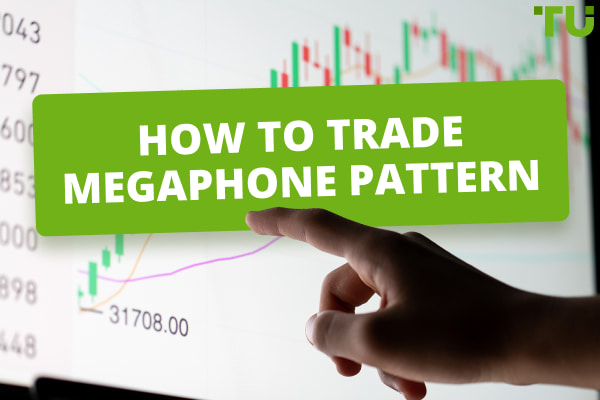How to trade commodities on the stock exchange
In this article, the matter of commodities trading on the stock exchange is explored. Also examined are the market participants, what goods can be traded, and what upfront investment will be required.
Start trading commodities right now with RoboForex!Exchange-traded commodities
Due to globalization and the rapid growth of the world economy, the demand for commodities is growing steadily.
International commodities trading is standardized. Assets contain the same amount of goods of a standard variety, type, and brand (lot, exchange unit, batch, capacity, volume, and weight). For example, commodities trading on the Chicago Stock Exchange is fixed in lots, when one unit for grain is equal to 5,000 bushels (more than 120 tons). In turn, on the European stock exchanges, this lot is fixed at 50 tons.
Typically, an exchange asset is presented in the form of commodities. Its main classification feature is that, as a rule, it undergoes exclusively primary technological processing. Commodities trading on the exchange is represented by several fungible goods of standard quality, namely:
energy and industrial commodities;
metals, textiles, and timber;
livestock products;
grain and products of its processing;
food products
Ready-to-use products of industrial and engineering production, consumer goods cannot be the subject of exchange trading due to their huge variety, rapid changes in technical characteristics, and the possible level of monopolization of production and sales. The regulation of these goods' production volumes largely depends on the desire of the manufacturers themselves. Through this mechanism, they can influence the level of pricing. So, international commodities trading does not take into account the above products.
What Are Commodities and How to Make Money on Them?Where does commodity trading take place?
Commodity wholesale exchanges of pure competition play a special role in the infrastructure of a modern market economy. Through financial instruments, namely: goods, currencies, and securities, they ensure the operation of the market. The commodity exchange operates on the principle of free competition. Bidding takes place both in large financial and industrial centers and with the help of a virtual (electronic) platform.
The bases of international commodities and gas trading are counter-offers of the parties. Trades involve standardization of product quality requirements.
The exchange provides organization and formation of currencies markets, goods, and capital. It is also involved in trade simplification, price stabilization, and protecting the interests of traders and buyers from negative price fluctuations. All this is due to the alignment of supply and demand.
Trading commodities on the stock exchange is characterized by publicity, openness, and free pricing. Thanks to compliance with these rules and the transparency of commodity flows, the shadow market is self-liquidating.
For each commodity exchange, the main document that regulates the process of trading commodities is the rules. They are developed and approved by each structure separately but the requirements of current legislation are also taken into account.
All trades on the stock exchanges are made without government intervention.
The largest platforms that are solely trading commodities are CME Group and Intercontinental Exchange (ICE), MGEX, and London Metal Exchange.
International commodities trading is a constantly functioning wholesale market where trades are made for the purchase and sale of mass-produced goods following standards and samples.
Trading platforms may be:
universal - Chicago Commodity Exchange, Central American Commodity Exchange, London Futures and Options Exchange, Tokyo Commodity Exchange;
specialized - that is, to work only with certain types of goods, such as the Kansas City Exchange (for wheat trading), the London International Petroleum Exchange, and the Hamburg Coffee Exchange.
Main commodity market participants
Of course, during the commodities trading on the stock exchange, entities are involved that are often called market participants. They are divided into two types:
commodity manufacturers;
commodity traders, which are financial institutions, investment companies, and individuals.
Over the past few decades, most of the commodities traded in the commodity markets have been traded through derivatives such as forwards, futures, options, warrants or swaps. Trades are made either in regulated or over-the-counter markets.
Once reserved for institutional investors, commodities and gas trading are now of interest to many individual traders. However, before you start speculating on commodities, you need to gain sufficient knowledge and experience.
Main types of commodities on the stock exchange
Commodity instruments include several large groups:
agricultural products - rice, wheat, sugar, coffee, etc.;
energy carriers - oil, natural gas, coal, fuel oil;
Due to market volatility, international commodity trading allows investors to earn high profits, prolongate individual instruments and diversify their investment portfolio.
Energy commodities
Crude oil and natural gas are the most traded commodities on the exchanges. Since this commodity is used in many processes, it is an excellent indicator of world economic development. You can observe how significant fluctuations in the prices of "black gold" affect stock market quotes. The same thing happens with natural gas.
There are various ways to react to changes in energy prices, futures, ETFs and CFDs. The choice depends on the experience and size of the investor's free capital.
Tickers of the main exchange futures for commodities:
BR - Brent oil;
WTI - WTI oil;
CL - Light brand oil;
UR - URALS oil;
NG - natural gas.
XRB - gasoline 95.
Precious metals
Speaking about the international commodities trading on the stock exchange, one should not forget about the second large-scale group of commodities, which are precious metals. The nobleness of a metal is determined by its resistance to corrosion and oxidation in air.
Commodities most in demand on the market include are:
Gold (GC) is the most traded metal used in industry, banking, and medicine. Small investors who are not interested in investing too much capital in precious metal trading through futures contracts most often choose the CFD option.
Silver (Sl), a member of the precious metal family, has a more volatile price than gold. Maybe, you are also interested in information about top silver stocks to invest in.
Copper (CO) is the basis of metal alloys such as brass or bronze and is widely used in construction.
The trading time for this commodities class on the exchange varies. Contracts between market participants can be concluded both for a period of one hour and for a year.
Agricultural commodities
Trade in agricultural goods is of great importance, especially for farmers. They can prevent significant losses from an unpredictable fall in prices for this exchange asset with the help of derivative financial instruments.
Features of different types of agricultural commodities:
The profitability of trading such commodities as grain (ZW) depends on the current weather conditions. Changes in the meteorological situation are difficult to forecast, so farmers hedge themselves using derivative financial instruments.
Coffee (KC), the world's best-selling agricultural commodity, enables more than 100 million people to earn every year. This is an extremely popular product, the price of which depends on the cultivation of coffee bushes.
Cocoa (CC) is the main commodity used in chocolate manufacture. It is no less actively traded on the stock exchanges.
Chemical elements
The fourth group that draws the attention of traders to international commodities trading is chemical elements. Unlike traditional goods, these type of tools is mainly produced synthetically. Mining is costly and sometimes not very profitable.
The most traded chemical elements:
Uranium (UX) is used in nuclear reactors and acts as a fuel for power generation. There are events in history that did not bring demand for this method of obtaining energy (Fukushima, Chernobyl). Learn also about top uranium stocks for long-term investment to know the best investment options and potential returns in the uranium sector.
Lithium (LIT) is considered a suitable element for long-term storage of electricity in the form of lithium batteries and accumulators. The growing popularity of battery technology creates a high demand for this commodity.
Another metal belonging to the group under review is cobalt (CB). Due to its low availability and complex manufacturing process, its price is high, comparable to that of silver. Cobalt is added to alloys because of its hardness, resistibility, and durability.
Trading instruments in the commodities market
Commodities trading is made using various financial instruments. Consider the most popular of them and define their key features.
Oil futures
Oil futures are a bilateral contract to buy/sell a specific underlying asset at a predetermined price on a strictly announced date. Basically, commodities trading on the stock exchange, if we talk about energy carriers, is performed precisely through this instrument. Entrepreneurs who use commodities for production can take part in trades. But most oil futures involve investing and getting settled through the difference in price between the contract and the commodity price on the exchange.
CFDs
One of the great advantages of trading CFDs directly on the commodity market is the lower capital requirement. This means that while oil futures are a contract for a few barrels, with CFDs it is possible to trade smaller amounts. But the risk is also high due to leverage (up to 1:100).
A trader's ability to earn on CFD trading directly depends on the broker. The income amount is affected by the margin, leverage, and even the asset value at a point in time. To make commodities trading profitable, we recommend that you carefully analyze the conditions of a brokerage company before opening an account.
ETFs
ETF stands for Exchange Traded Fund. This is one of the most demanded instruments in commodities trading. Managers of such funds seek to reproduce the behavior of an index, group of commodities, or other underlying product as accurately as possible. The popularity of ETFs is mainly due to low transaction costs and the simplicity of the product. A trader can create a diversified portfolio easily and affordably. For example, a single ETF share may contain a portfolio from a group of energy commodities or commodity stocks. The most popular funds today are:
SPDR Gold Shares (GLD) and iShares Gold Trust (AU) are popular gold ETFs.
United States Oil Fund (USO) is the largest oil ETF.
Invesco Commodity Index (DBS) is an ETF for a commodity index.
Another advantage of ETFs is low management costs. This fact is often ignored, but it directly affects profitability. In addition to this, popular ETFs usually have high liquidity and low spreads, which additionally attracts many traders and investors.
What affects the cost of commodities
There are several factors that have a direct impact on the cost of commodities.
Supply and demand
Supply and demand depend on each other and change regularly. It must be kept in mind that as soon as the cost of the goods decreases, as well as the supply, the demand will increase. The law also works the other way around and it should be taken into account not only in the domestic market but also on world exchanges, otherwise trading commodities may not give the expected result.
Weather
The weather has a significant impact on most goods, or rather, any natural disasters and anomalies, such as droughts, floods, hurricanes, or fires. As a rule, weather-related calamities cause an increase in prices for commodities, especially agricultural goods.
Export restrictions
Conflicts between countries often result in supply breakdowns or embargoes on certain products. Depending on the economic situation, this causes a fall or rise in the cost of goods. This aspect is extremely important to take into account so that commodities trading on the stock exchange does not turn out to be unprofitable.
Amount of stock
Disproportions between demand and production of goods are compensated by stocks. The higher they are, the more stable the price of this product.
Most investors believe that, as long as inflation continues to rise naturally and the economy is stable, commodity prices (regardless of which group they fall into) can respond similarly to market changes. However, such a scenario will not work in a crisis, an example of this is the recent drop in oil prices. So you can make good money in the commodity market, but losses may also be significant. For this reason, we advise you to improve your knowledge regularly, manage your capital wisely and avoid rash business decisions.
How much money do you need to trade commodities
As we mentioned above, it is the cheapest way to trade CFDs. But how much money do you need on average to start trading commodities?
Oil futures provide for a deposit of several thousand dollars since one contract contains 1,000 barrels of oil.
CFDs require $30-$50, but many of the strategies involve much higher investments.
To buy an ETF, you must have at least $50 in your investment account.
Main trading strategies
Among the investment strategies for international commodities trading on the stock exchange, the dividend is the safest for a beginner. It provides for the purchase of those goods whose producers are willing to pay a certain percentage of profits, regardless of the situation in the market.
The most popular commodity trading strategies are:
Scalping. It is one of the most popular tactics for active intraday traders who trade commodities. The speculator receives even the smallest profit from the price movement in a matter of seconds or minutes. To do this, he sells the asset as soon as the quoted bid rises above the purchase level. Most trades are made in the morning, so the trader should be as focused as possible. A successful scalper must strictly adhere to the tactics and established stop loss levels.
Swing trading. The trader is trying to profit from the movement of the asset for several days or even weeks. This commodity and gas trading strategy involves the ability to find good positions through analysis (technical and fundamental) to gain an opportunity to earn.
Impulse commodities trading. The trader is trying to speculate on the news or look for strong trend moves on current high volumes. He buys when breaking news comes out and holds the goods until the trend reverses. The momentum trader of the second type buys an exchange asset when it grows in large volumes, and holds until trading volumes begin to go down and the trend reverses.
Investment in commodities. Some traders use an investment strategy that involves analyzing the supply and demand balance, and political and financial factors influencing prices. Investors typically buy commodity ETFs and can hold them for six months to several years.
Each trader chooses a trading strategy himself, but the general rule for all is the same - the chosen strategy must be strictly adhered to. Some traders prefer to take long-term positions in certain assets. Others, more experienced ones, take advantage of the high volatility of certain commodities to speculate on a short-term strategy.
How to start trading commodities
To start trading commodities on the exchange, follow the instructions below:
Determine which type of commodities is closer to you. You may try energy resources popular among investors, such as oil and gas. Start learning in detail, and stay tuned for news and price fluctuations. If interest in an asset gradually disappears, switch to another one.
Choose a broker. If you do not yet have a trading account, we recommend that you open one with a broker that offers a wide range of commodities. This will help to switch to trading with another type of commodities in case of loss of interest in the previously selected asset, unpredictable fluctuations in its price, or other factors. Of course, when choosing a broker, you should also pay attention to the existence of a license, the size of the minimum deposit, and trading and non-trading fees.
Open an account with a broker. Many companies offer virtual deposit demo accounts that are used to simulate trading activity in a risk-free environment. After training, you can open a real account. As a rule, for this, you need to register on the broker's website, and then verify your identity.
Start developing a trading strategy. Chaotic trading is the fastest way to lose your invested capital. Gradually develop your own system of rules by which you will trade. Do not forget to test the strategy on a demo account.
Follow risk management rules. There are many of them in trading, but at the initial trading stage, you need to follow at least the basic ones. Never invest all free capital in one instrument and do not invest more than 5% of the actual deposit in a trade.
Constantly learn the market. To predict the price fluctuations of an asset correctly, it is necessary to be aware of the economic, financial, and political news in the world. Even if you have chosen a long-term investment, stay up to date with events. This will help to adjust the portfolio in time and rebalance it if necessary.
Before you start trading commodities, be sure to learn this market segment and prepare mentally for trading. Once again, your attention is drawn to demo accounts. With their help, you can practice making trades, but without the risk of losing funds.
Best brokers for commodities trading
The Traders Union analysts have reviewed hundreds of brokers with the specific goal of determining which of them offer the best conditions for trading commodities. Based on the results of the comparison, RoboForex and Interactive Brokers were named the best brokers for trades in commodity markets.
RoboForex | Best for CFD commodity trading
RoboForex can be considered the best broker for CFD (contracts for difference) commodities trading. It is a fully regulated company that has been providing brokerage services since 2009. At the moment, through RoboForex, you can invest with leverage of up to 1:100 in energy resources such as oil, gas, fuel oil, and ethanol. Available metals include gold, silver, platinum, and palladium.
RoboForex is best suited for international commodities trading for several reasons:
It has loyal deposit requirements. You can deposit as little as $10 or Euros to get started. At the same time, the company does not withhold a commission for depositing funds into a trading account.
RoboForex offers not only demo accounts but also cent accounts. That is, you can first practice trading commodities for virtual money (without using your capital), and then enter the real market with minimal investment and risk.
CFDs for commodities can be traded across multiple platforms. The broker offers the most popular MetaTrader (MT4 and MT5) and cTrader terminals among traders. Professionals can use R Trader, which offers over 12,000 trading instruments.
In addition to CFDs, with RoboForex you can trade exchange-traded funds ETFs for commodities — wheat, soybeans, corn, sugar, coffee, etc. This type of financial instruments is designed for the long term, but at the same time, investments in ETFs are less risky than in CFD.
Interactive Brokers | Best for commodity futures trading
Interactive Brokers also offers CFD commodities trading. Its commission rates for this instrument can be considered one of the lowest in the market because the client pays only 0.0005-0.03% of the trade amount.
However, a huge number of traders around the world use Interactive Brokers to trade commodity futures. The broker not only offers a wide range of assets in this class but also keeps low commissions, provides advanced trading platforms, and provides access to 30 international exchanges.
At the moment, through Interactive Brokers, you can trade futures contracts for precious metals (gold, silver) and energy resources (oil, gas). The broker also makes it possible to make trades with the so-called "soft" goods. These include commodities that are grown, not mined. In other words, agricultural products such as cocoa, coffee, grain, potatoes, sugar cane, etc.
Reasons why Interactive Brokers is the best choice for trading commodities:
Reliability - this broker has been operating since 1977 and is controlled by the most authoritative international regulators in the USA, Great Britain, Australia, and Japan.
A wide range of assets - futures trading is available on exchanges in North America, Europe, and the Asia-Pacific region.
No minimum deposit requirements - you can start with any amount, even USD 1.
Attention! Futures are highly risky instruments. According to financial experts, they should only be used by experienced traders, not by beginners.
Conclusion
The international exchange market plays a significant role in a market economy, reflects the real state of commodity relations, and provides an opportunity for speculation and forecasting price trends. An effective mechanism for de-shadowing and demonopolization of the commodity market is the use of exchange instruments that contribute to the formation of specific fair prices, thereby reducing risks. If you master it at a sufficiently professional level, then commodities trading becomes more profitable and safer than many other trading and investing options.
FAQs
What is the role of the exchange in commodities trading?
Like the market, the exchange unites the micro and macro levels of the economy, that is, entrepreneurs with production. Due to the pricing mechanism, it continuously provides economic entities with information about changes in the market, the emergence of new conditions of exchange, the emergence of new types of goods, etc. Commodity exchanges are diverse in their structure, composition of participants, and trading rules.
What commodities are traded on the stock exchange?
For the full functioning of the country's economy, such goods are important that, in fact, are involved in the trading commodities on the stock exchange such as metals, oil products, coal, gas, electricity, grain, sugar, and meats. Vegetable oils are mainly sold on the over-the-counter market and, as a rule, through shadow schemes, bypassing the transparent exchange market. The lack of perseverance in the introduction of pricing mechanisms and monopolization create conditions for the constant occurrence of inflationary processes, an unreasonable increase in consumer demand and, in general, lead to destabilization of the country's economy.
Best commodity trading instruments
It is impossible to define the tools that make commodity trading efficient. The choice always depends on the specific type of trader and his style, as well as on the current market situation. Nevertheless, futures, ETFs, and CFDs are considered the main instruments.
What influences the cost of a commodity?
There are several factors. First, it is the high activity of speculators, which increases this market liquidity. Also, the final commodities cost is influenced by supply and demand, the political and economic situation (e.g., export restrictions), the amount of stock, and the weather, which affects the quantity and quality of the crop. Governments of countries and international organizations pursue their economic and political goals, impose customs duties, and embargoes, and control production (and hence supplies), thereby indirectly affecting the cost of commodities.
Team that worked on the article
Andrey Mastykin is an experienced author, editor, and content strategist who has been with Traders Union since 2020. As an editor, he is meticulous about fact-checking and ensuring the accuracy of all information published on the Traders Union platform. Andrey focuses on educating readers about the potential rewards and risks involved in trading financial markets.
He firmly believes that passive investing is a more suitable strategy for most individuals. Andrey's conservative approach and focus on risk management resonate with many readers, making him a trusted source of financial information.
Dr. BJ Johnson is a PhD in English Language and an editor with over 15 years of experience. He earned his degree in English Language in the U.S and the UK. In 2020, Dr. Johnson joined the Traders Union team. Since then, he has created over 100 exclusive articles and edited over 300 articles of other authors.
The topics he covers include trading signals, cryptocurrencies, Forex brokers, stock brokers, expert advisors, binary options. He has also worked on the ratings of brokers and many other materials.
Dr. BJ Johnson’s motto: It always seems impossible until it’s done. You can do it.
Mirjan Hipolito is a journalist and news editor at Traders Union. She is an expert crypto writer with five years of experience in the financial markets. Her specialties are daily market news, price predictions, and Initial Coin Offerings (ICO). Mirjan is a cryptocurrency and stock trader. This deep understanding of the finance sector allows her to create informative and engaging content that helps readers easily navigate the complexities of the crypto world.











